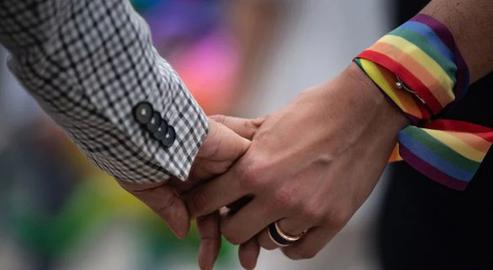Members of the Iranian LGBT+ community do not hail from a specific group or class but are present across all strata of society. Regardless of circumstance, they all have one thing in common: fear of revealing their true identity in a country that criminalizes homosexuality and ostracizes transexuals.
Omid is a 26-year-old homosexual Iranian who studied in the country’s Shia seminaries over several years. Today he lives in Tehran and is still at pains to keep his sexuality a secret.
"The story of my going to the seminary is a strange one,” he told IranWire, “both for myself and for anyone who hears it. I studied mathematics in my last year of high school’ my family is not very religious, but I did grow up with religious beliefs.
“A religious and cultural institution started operating in our school. Little by little, I was attracted to this organization and its activities. I got to know one of the activists and we became friends.
“Early on in the relationship, it was just work. But little by little, as time went on, this friendship grew closer and closer. I don’t know what it was that made me fall in love.”
As a child, Omid always felt somehow estranged from his peers. He knew something about him was different, but being a believer, he did not allow himself to consider the idea he might be homosexual – even during puberty, when he knew he felt both sexually and emotionally attracted to other boys.
Eventually, the clerics stationed at Omid’s school encouraged him to take the seminary entrance exam. The love in his heart by that time, he said, was motivation enough. "I wrote a letter to my family to say goodbye,” he said. “I had chosen my path.”
The news was a blow to Omid’s family, who had always wanted him to study math at university. But he was already gone. “We had no contact for a few days,” Omid said, “but after a few days, my father called me and asked to talk. In the end they had to respect my decision."
Omid had thought that being in the seminary would help him repress his sexual desires. Not only did the feelings not go away, but he had his first sexual experience within the walls of the seminary.
For Omid, though, this was a bitter and frightening experience. At the age of 19, he said, he did not understand what the other person wanted and therefore could not have given consent. Today, he regards what happened as akin to rape. In the aftermath he felt traumatized and struggled for a time with suicidal thoughts.
“I was still afraid of myself, and looking for a way out,” he said. “I consulted with famous [Shia] scholars to find a solution, but I was met with different reactions. Some deemed me to be a sinner and rejected me. Some wanted to have sex with me. Some wanted to treat me with irrational remedies like abstinence. They even suggested I get married to ‘change’ my sexual orientation. I am very happy that I did not do this, and did not play with another person's life."
Three or four years into his seminary education, Omid fell in love again: this time with a classmate who, it later transpired, harbored the same feelings for him. “I came to myself,” Omid said, “and I saw that I was in love, and that the other person also loved me.”
Despite this newfound awareness, both Omid and his partner remained confused about how to address their feelings under the repressive gaze of the Islamic Republic. Iran’s Islamic Penal Code criminalizes sexual relations between men – a crime punishable by flogging or even the death penalty – but has some legal provisions for transsexuals. The pair discussed the prospect of Omid undergoing gender reassignment surgery so that they could marry. “I should change sex and be a woman to justify my emotional and sexual desires to men,” Omid said.
In time, though, he came to know the Iranian LGBT+ community better and realized that he did have options. " I got to know myself better," he said. “The stories and experiences of different people brought me face-to-face with reality, and helped me to accept myself as a gay man.
“Although my love affair ended, the longer I went on, the more I came to the conclusion that religion did not hold the answers to my internal questions. That’s why I left the seminary, and decided to live for myself."
A few years after he left, Omid discovered some of the seminary students and mullahs with whom he had slept were trying to make life difficult for him by talking about him behind his back. His close friends began to avoid him, while he still shied away from telling them the truth: a situation that persists to this day.
Omid’s story is far from unique. These are commonplace occurrences in Iran’s all-male institutions, from the seminaries through to the military barracks. But very few of those involved ever speak out, for fear of reprisal, or even death. Hundreds of thousands of gay men and women across Iran carry a similar burden – or else leave the country in the hope of being able to live truthfully somewhere other than their homeland.
Related coverage:
Disowned by Their Families, Iranian Trans Women Turn to Sex Work
Of Violence and Tragicomedy: Life as a Gay Iranian Asylum Seeker in Turkey
Gay Iranian Man Murdered by Family on Being 'Outed' by Military Service Card
"I Played My Role Too Well": Iranian Trans Woman Living a Double Life
Counselling or Coercion? LGBTQ+ Iranians Face Pervasive Ignorance in the Medical Community




















comments